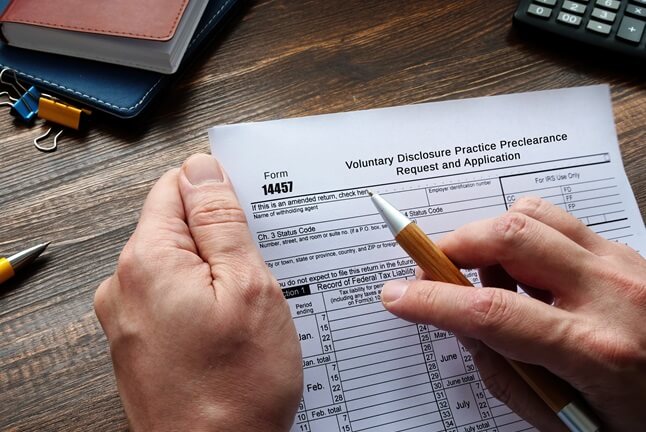In a significant development for businesses navigating the complexities of the Employee Retention Credit (ERC), the IRS has announced a reopening of its Voluntary Disclosure Program. This initiative aims to address problematic ERC claims, and it’s set to impact a wide range of businesses. Open until November 22, this program is designed to help organizations address improper payments by offering a 15% discount on repayments while avoiding future audits, penalties, and interest.
What’s Happening ERC Claims?
The IRS has recently unveiled plans to send up to 30,000 letters to businesses that may have filed erroneous ERC claims. Depending on the situation, the IRS may send you Notice 6612 alerting you that your credit is under audit. Or they may send Notice 105-C which says that your credit has been disallowed.
These claims initially intended to provide financial relief during the COVID-19 pandemic, have come under scrutiny. The IRS estimates that these errant claims amount to over $1 billion. To rectify the situation, the IRS is reopening its Voluntary Disclosure Program, which allows businesses to come forward and correct their claims without facing the full brunt of penalties or legal consequences.
Why the Voluntary Disclosure Program?
The ERC was designed to help businesses retain employees during challenging times. However, the complexity of the credit and the rush to secure relief led some businesses to make errors in their claims. The Voluntary Disclosure Program is a proactive step by the IRS to encourage businesses to correct any mistakes. By participating in this program, businesses can avoid severe penalties, reduce the risk of audits, and demonstrate their commitment to compliance.
What Should Businesses Do?
If your business receives a letter from the IRS, it’s crucial to review your ERC claims carefully. The letter will provide specific details about the issues identified and guide you on how to proceed with corrections. Engaging with the Voluntary Disclosure Program allows you to address these issues in a controlled manner, helping to mitigate potential fallout.
Benefits of Participating in the IRS Voluntary Disclosure Program
- Reduced Penalties: Businesses can often avoid hefty fines and penalties by coming forward voluntarily.
- Avoiding Audits: Participation can minimize the risk of more extensive audits and investigations.
- Compliance Assurance: Correcting errors demonstrates a commitment to compliance and ethical business practices.
There are several benefits to participating in the second ERC-VDP if you received the ERC for 2021 tax periods but weren’t entitled to it and now want to pay the money back. If you apply to the second ERC-VDP:
- You need to repay only 85% of the ERC you received as a credit on your return or as a refund.
- You don’t need to repay any interest you received on your ERC refund.
- You don’t have to amend income tax returns to reduce wage expense.
- The 15% reduction is not taxable as income.
- The IRS will not charge penalties or interest on the claimed ERC amount if you pay it in full (claimed ERC minus 15%) by the time you return your signed closing agreement to IRS.
- The IRS won’t examine (audit) ERC on your employment tax return for tax period(s) resolved within the terms of ERC-VDP.
Looking Ahead
The agency’s move to reopen the Voluntary Disclosure Program is a clear signal of its focus on ERC claims and its intent to ensure that businesses adhere to proper claim procedures. This is an opportunity for businesses to rectify mistakes and continue focusing on their core operations without the looming threat of punitive measures.
For further guidance, affected businesses should consult with tax professionals or legal advisors to navigate this process effectively. Staying informed and proactive is key to maximizing the IRS’ current initiative.
The reopening of the Voluntary Disclosure Program by the IRS underscores the importance of accuracy in ERC claims. It provides a path for businesses to correct errors and avoid severe penalties. If your business is among those affected, now is the time to act and ensure that your ERC claims are in order.
At Wiggam Law, we’ve been keeping up with the twists and turns of ERC since day one. Our experienced tax attorneys can help you evaluate your claim and guide you through the withdrawal process if necessary.
Call us at (404) 233-9800 or schedule a consultation online today! Reaching out for help now can help save you a potential headache later as the IRS continues to crack down on ERC claims.

